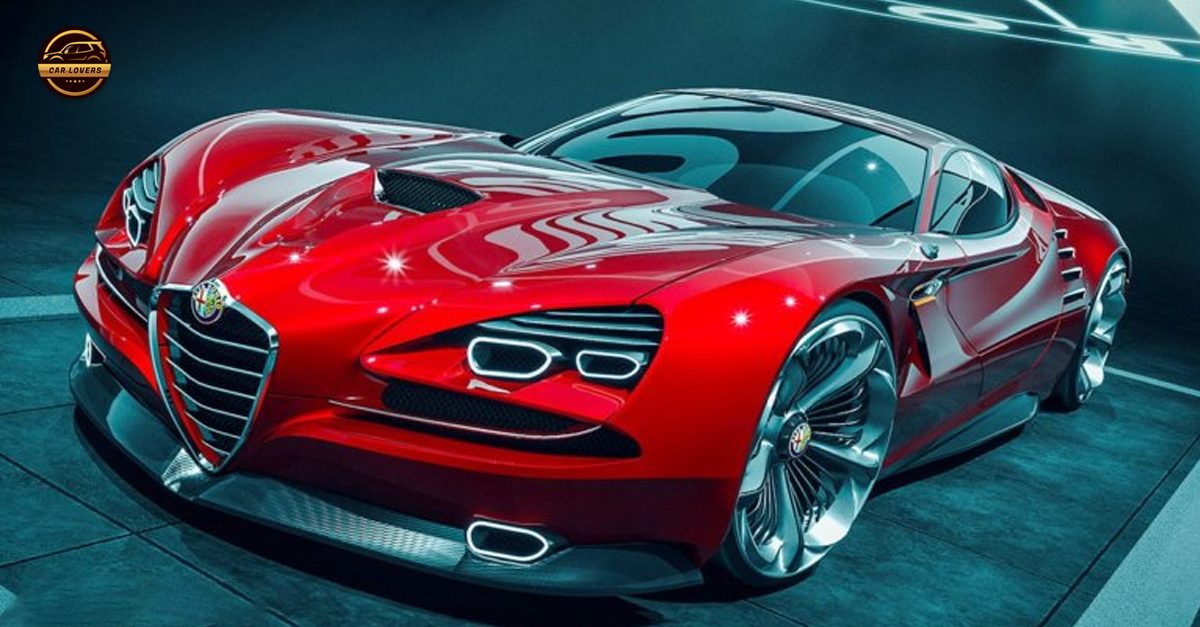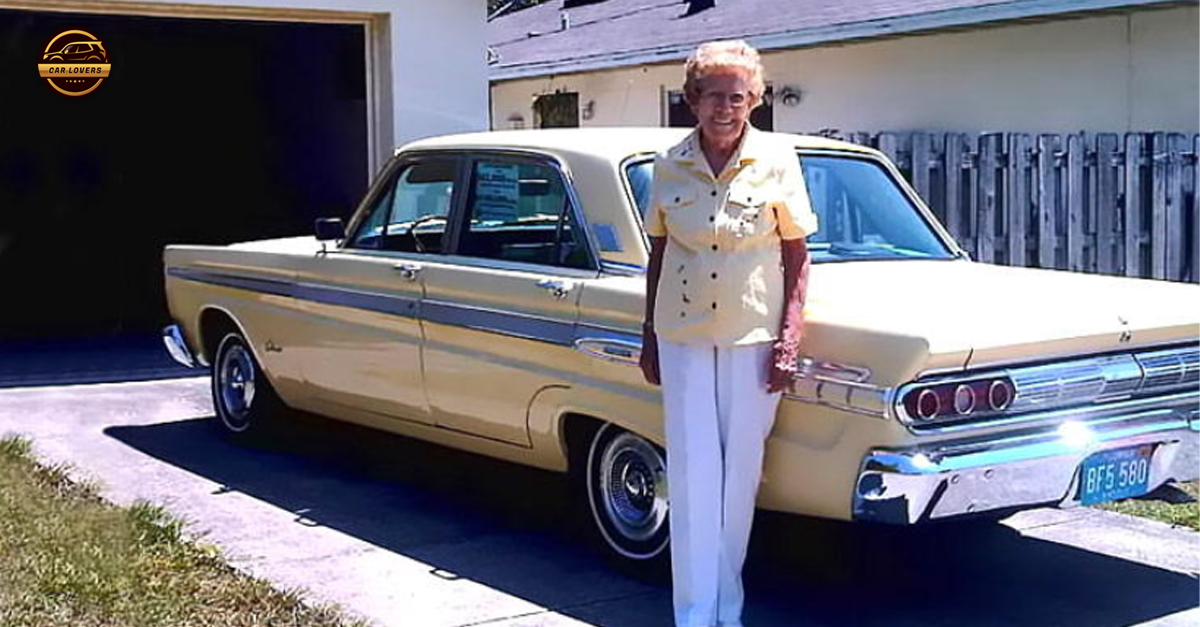Scotland hadn’t launched a new car for 40 years before 2022 – now it has two.
Munro Vehicles, based close to Glasgow, released its MK1 Truck in December. And today it lifted the lid on its sequel model, the MK1 Pick-Up. The all-electric off-road workhorse has a claimed range of over 190 miles on a full battery charge and is available to order now with prices starting at £49,995 before taxes.
Here’s everything you need to know about it…

The automotive start-up – which was only founded in 2019 – says the MK1 Pick-Up is the first ‘light vehicle to enter production in Scotland in more than four decades’.
It boasts ‘unique abilities’ that will see it best utilised operating in ‘challenging sectors such as mining, construction, utilities, agriculture, and defence’ to help eco-conscious individuals and companies ‘meet imminent decarbonisation targets without compromising on performance,’ the brand says.
‘Priced from £49,995 Ex VAT with deliveries commencing later this year, we have already secured more than 200 orders for the MK_1 Pick-Up, three of which have come from FTSE 100 companies and ten from FTSE 250 companies,’ confirmed Munro chief executive and co-founder Russell Peterson. With a full two-year order book for both the MK1 Pick-Up and the MK1 Truck, Munro is having to expedite its search for larger premises to meet customer demand.’
The first version premiered is in the highest-specification ‘performance’ variant, complete with monster-truck-like suspension, a robust boxy body and chunky off-road tyres. Built on the same platform as the MK1 Truck, the biggest change is the huge loading bay at the back, which has a 1,050kg Euro pallet payload.
The range-topping model also benefits from a 3,500kg maximum braked towing capacity. This should be enough for it to ‘effortlessly’ haul all types of cargo, including ‘farm implements and livestock to construction and disaster relief equipment,’ the manufacturer says.
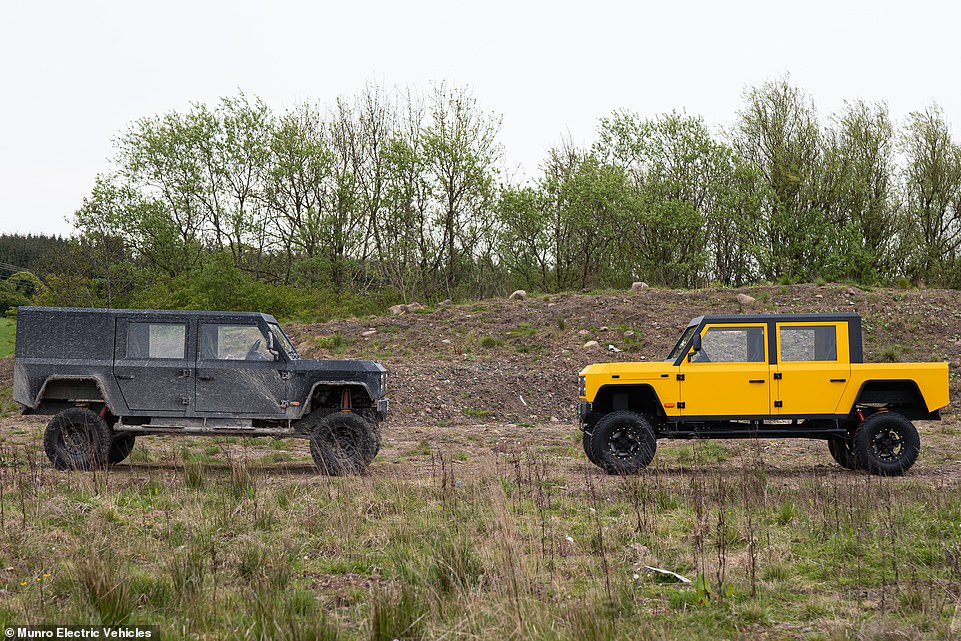

The pick-up also has human-lugging capabilities, with three independent seats in the back to allow for five occupants in total. The utilitarian vehicle is powered by a new state-of-the-art 280kW electric drivetrain. The Scottish start-up claims it can accelerate from a standstill to 60mph in just 4.9 seconds.
Charging its 82.4kWh battery from 15 to 80 per cent using a 100kW DC charger can be completed in as little as 36 minutes – essentially less time than it takes a construction worker to down their tea and consume a sandwich on their lunch break. With a fully charged battery, the MK1 Pick-Up is said to have a range of ‘more than 190 miles’.
This means it should be good to run off-road for up to 16 hours at a time between charges. The basic look of the vehicle, with its cubic proportions and flat-panel bodywork, have been designed and engineered in Britain with a purpose – and with UK conditions and terrains in mind.
Munro says it was its pick-ups to combine ‘rugged reliability and easy repairability’, meaning owners should be able to handle cosmetic repairs themselves – though might want to leave powertrain maintenance to the company’s qualified EV technicians.
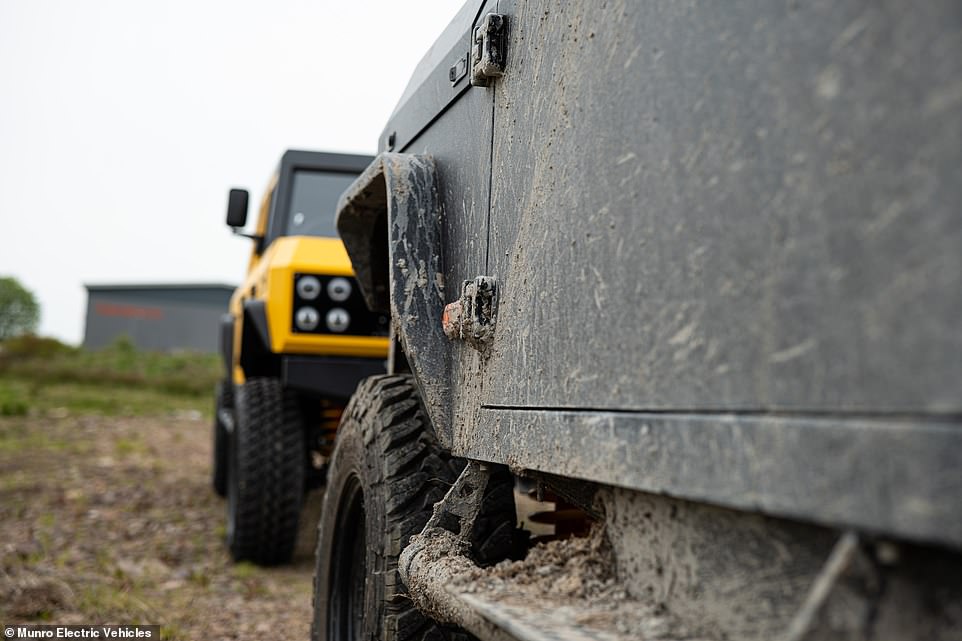
The battery pack comprises 35 lithium battery modules mounted in three heavy-duty aluminium boxes underneath the vehicle, which should provide enough protection from any heavy clangs and bumps during working hours. ‘This arrangement ensures it is quick, convenient, and inexpensive to replace individual battery modules if required,’ the brand says.
Ross Anderson, head of powertrains, explained: ‘A fully integrated heat pump-based thermal management system bolsters efficiency, and the Munro’s battery pack is guaranteed to deliver 80 per cent of its original energy capacity for at least eight years and 100,000 miles.’
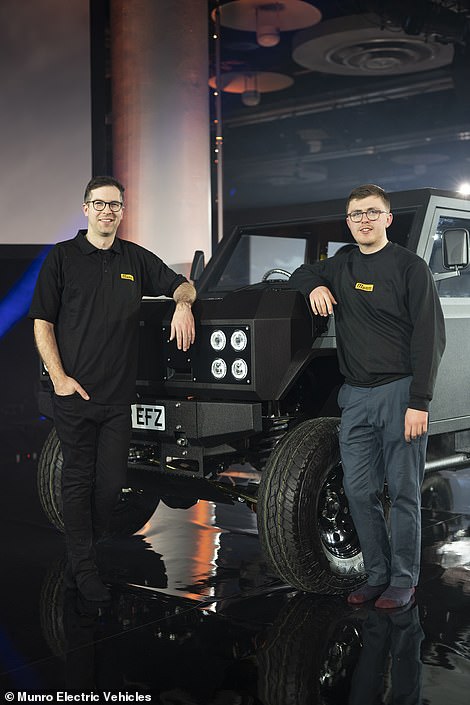
Anderson says because the Munro MK1 models have been engineered to last several decades, the brand promises to either recondition or replace the battery pack for customers when it shows signs of degrading. ‘This has the added benefit of guaranteeing the future value of our customers’ vehicles,’ he told us.
‘We will partner with companies specialising in reuse and recycling to recoup the residual value of the battery pack, which will enable us to fit the latest battery technology at a reasonable cost.’ While it won’t have a dealer network, each vehicle will be sold with a comprehensive five-year/100,000-mile warranty, which Anderson describes as ‘super flexible’ for customers.
‘We recognise and respect our customers’ right to repair and maintain their vehicle, and their doing so will not invalidate the warranty,’ Anderson added. Owners who are unable – or do not wish to look after the vehicle themselves – can either take their Munro vehicles to a local agent or request for the company’s service fleet to visit them and carry out the work onsite at their convenience.
‘We launched Munro to fill the significant gap in the market for an electric-powered, four-wheel-drive, utilitarian workhorse,’ Peterson adds.
‘Our vehicles are designed and engineered without compromise from clean sheet principles unimpeded by any existing architecture. The result is a rugged construction created for decades of service delivering ultimate, go-anywhere, off-road ability.’
The company CEO says the vehicle has strong global appeal and has already set out plans – with its financial partners – to ‘exploit’ the gap in the market for a zero-tailpipe-emission workhorse machine.
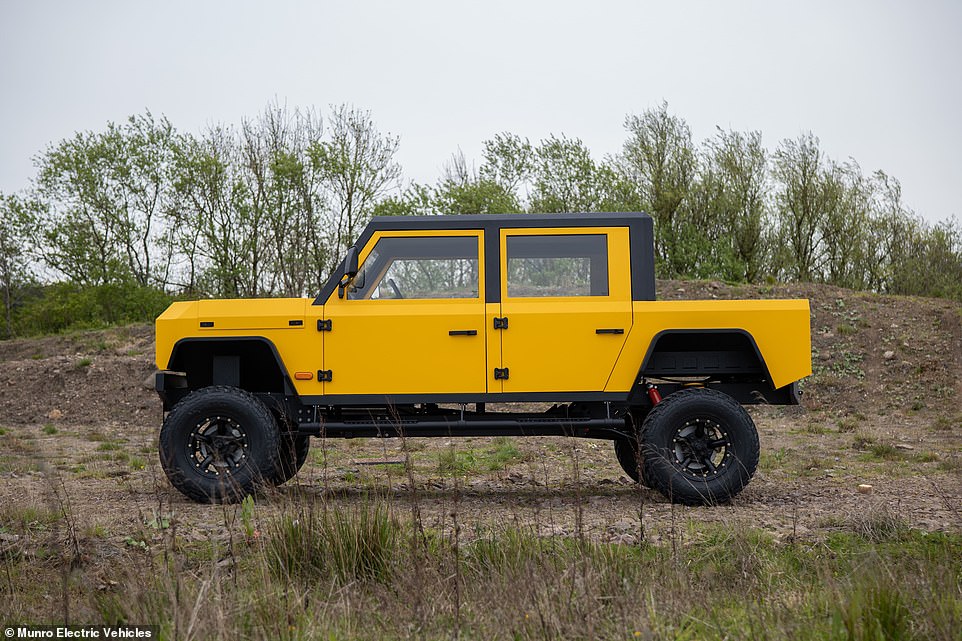
The MK1 Pick-Up, though available to order, isn’t quite ‘showroom’ ready, though. Munro confirms it will shortly move to a pre-production prototype testing stage before full-scale manufacturing commences and first deliveries arrive with customers from the end of the year. Munro’s headquarters are located in East Kilbride.
It is due to move to a new purpose-built factory in central Scotland next year where it intends to produce 250 vehicles in the fist year, rising to 2,500 annually by the time it reaches full capacity in 2027. The plant will also create 300 new jobs in the area.
It will be the first volume-production vehicle output in Scotland since the Linwood plant near Paisley was shut down by Chrysler UK in February 1981 – some 42 years ago. It had been the assembly line where the Hillman Imp was built between 1963 and 1976, and its closure left mass unemployment in the area – which is famously referenced in the song ‘Letter from America’ in the Proclaimers’ 1987 debut album, which included the lyric: ‘Linwood no more’.
Source: dailymail



